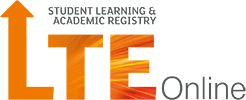The second symposium in the series focuses on the theme of ‘The Connected Communities’ and we are delighted to welcome Professor Monika Foster (Northumbria University) as our keynote speaker for the event. The title and outline for Monika’s talk can be found below.
Globally Connected learning: Developing Learner Relationships in Global Higher Education, a Critical Pedagogy.
By Professor Monika Foster, Head of Department of Marketing, Operations and Systems, Newcastle Business School, Northumbria University
In a rapidly evolving and highly topical field of globally connected education, internationalisation strategies call for maximising the benefits of a diverse campus and preparing our students for a multicultural and interconnected world (Shuessler, 2020, Stein, 2019). Furthermore, universities’ mission to respond to societal changes, paired with an increased competition for talent and the undeniable need for collaboration on a global scale, provide an impetus to develop curriculum solutions for equitable, inclusive, and critical learning which is relevant to students’ current and future personal, social, and professional lives (Adichie, 2009, Hunter, 2008; Ortiz et al, 2020¬).
Drawing upon principles and theory of international education, diversity, and relationship science, as well as critical pedagogy (Killick and Foster, 2021, McArthur, 2010; Miller, 1986; Wink, 2005), this keynote, will explore how we can maximise the benefits of diversity on programmes of study by relationship development among diverse students in diverse contexts. Using research-informed examples, we will explore designing and facilitating critical academic practice to enable students to enact relationships with cultural others, engage in critical dialogue, explore diverse perspectives, and learning collaboratively to develop confidence and critical capabilities.
Disciplinary Insights – sharing practice!
The LTExChange symposium explores the changing relationships between technology, teaching practice, curriculum design, and stakeholders both within and beyond our courses (students, staff, industry). To this end, the panel discussion component of the symposium will bring together colleagues from across the university to discuss a range of practice-based work aligned to the broader theme of ‘Connected Communities’ in learning and teaching.
Meet our panel members!
Jonny Munby (Accounting and Finance, TUIBS)
TUIBS is a globally connected learning community, with over half of our on-campus students hailing from overseas. We leveraged this diversity with an exciting learning opportunity called the International Business Challenge. This challenge brings together students from different levels, disciplines, and programs, including those studying with our partners around the world. The students are tasked with developing and presenting a business proposal that addresses one of the United Nations Sustainable Development Goals.
Mike Graham, Jonathan Taylor, and Matthew Wright (Sport and Exercise Science, SHLS)
Graduate outcomes, employability and student perception are all key components of the current ‘assessment’ of the success/quality of a degree programme (i.e., League Table metrics). Embedding and nurturing connectivity between the academic curriculum and key external stakeholder priorities may enable a more authentic student learning experience that prepares graduate for the workplace. Colleagues in Sport and Exercise Science are currently exploring the importance of stakeholder engagement and continual dialogical frameworks in the design, development and delivery of BSc sport and exercise programmes, both locally (within TU) and nationally.
Rachel Dodd (Digital Journalism, SACI)
School of Arts & Creative Industries provides a set of specialised courses to niche audiences from the UK and Internationally. Interdisciplinary learning has been present in the school for many years, however with the introduction of the new L&T framework bringing large multi-faceted groups and larger (40 credit) modules to younger audiences, the need to create an even more engaged L&T model is paramount. In this session the school outlines how they tackle this: with a 3-phase module delivery, embedded check in points (formative assessment), a tight teaching team and support from live clients (local and global) and industry experts. Further projects include MIMA Creative week, collaborations with other Schools and other Adobe Creative campuses.
To book your place on this session please click here
About our keynote:
Professor Monika Foster CMBE is the Head of Department Marketing, Operations and Systems at the Faculty of Business and Law and Professor of Business Education. Her previous role was the Head of Sunderland Business School. Professor Foster has worked in Business Schools in the UK, Europe and Far East for over 30 years and led a number of international, cross-institutional and interdisciplinary projects to scope and design mechanisms for assisting students with transitions, especially international transitions and relationship building.
Monika’s research interests lie in cross-cultural management, employability, internationalization of higher education, intercultural aspects, and leadership and change management (HR). Professor Foster has previously led Research Centre for Management Learning and Business Education. Monika’s external recognition includes the award of National Teaching Fellow and Principal Fellow of HEA and a title of Visiting Professor in a number of universities, as well as Editorial roles including as Co-Editor on Perspectives On, and Dynamic Conversations with Chartered ABS.
